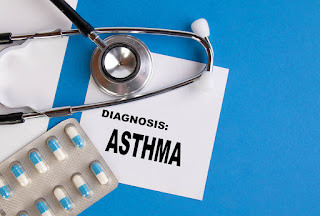After
experiencing symptoms like, wheezing, coughing, shortness of breath and chest
tightness, you go to doctor for treatment. Then the doctor will try to gather
information for proper diagnosis. He will ask questions about your symptoms and
will ask you to do some physical tests. Here are the tests the doctor will do.
Questionnaire
Test
In the
first step of diagnosis the doctor asks about the symptoms and the health
condition. From your answers the doctor will trace whether it is asthma or
anything else which is creating these symptoms. The doctor will ask about the
triggers which foster to worsen asthma symptoms. His/her questions may be as
following:
- What types of
symptoms do you experience and in which time they occur? Are the symptoms
found in a certain time in a year or in certain place? Is there anything
which worsens them? Are the symptoms getting worse at night?
- Does fever come
when the symptoms are found or do you have any allergy?
- Do you come in
contact with tobacco smoke, dusts, pollens or any airborne allergies?
- Is there any
hereditary condition of asthma, allergy or high fever?
- Is there any
other health problem with you?
- What type of
medications or any alternative treatments you are taking?
- Which type of
work you do?
- Do you keep any
pet animals or birds at home?
Physical
test:
Your
doctor will do the following tests:
- He/she will
check your throat, nose and upper airways.
- He/she will
examine your chest with a stethoscope to listen the breathing. During
breathing, if a whistling sound, which is known as wheezing comes, then it
is one symptom of asthma.
- He/she will
check your skin to find any allergic conditions, like hives or eczema.
The
doctor will also ask about the usual symptoms of asthma are found or not. The
symptoms are as follows:
- Shortness of
breath
- Coughing
- Wheezing
- Chest tightness
- Symptoms that
are increased when come in contact with cold, pollen, dust and also due to
exercise.
- Symptoms which
come and worsen in mid night
Test
for children:
Asthma
in children is found in an early stage before 5 years of age. It is very
difficult to diagnose asthma in very young children whose age range from 0-5
years.
Sometimes
the symptoms of asthma appear with other conditions. So in this stage, it is
difficult to diagnose the disease.
It is
also found that the children who suffer from wheezing by getting cold or other
respiratory infections, they may not have asthma after 6 years.
The
wheezing in a child may be due to small airways and it may become narrower due
to swelling by cold or any other infections in respiratory tract. With increase
in age the airways increase and the symptoms of asthma may not occur.
The
following symptoms in children show that, asthma may be present:
- Recurrent
coughing or coughing which worsen during and after energetic playing.
- Breathing may
sound more than normal breathing and the number of breathing is more than
normal breathing. For example, new-born babies take 30 to 60 breathes in a
minute and toddlers take 20 to 40 breathes in a minute.
- One or both the
parents suffer from asthma.
- The child has
allergies by pollution or by pollens.
- The child has some
skin allergies like eczema.
- Coughing with a
runny nose and high fever.
- The child has
also wheezing symptoms even in the absence of infections and cold.
- Less
participation in physical activities.
- Frequent absents
in school days.
Doctor
gives stress on lung function test, physical test and medical history for
diagnosis of asthma. But in case of children, lung function test is not easy
under 5 years. Thus, the doctor uses child’s medical histories, physical tests
and symptoms for diagnosis of asthma. The doctor also gives medicines for 5-6
weeks as a trial to find, how the condition of the child improves.
Tests
for diagnosis:
Lung
function test:
To
examine the lungs’ working ability, the doctor do a test called, spirometry
(spi-ROM-eh-tre). By this test the doctor is able to know the amount of air you
use in inhale and exhale. It also measures the speed rate by which you exhale
air. Then the doctor will prescribe some medicines to take and again may test
you to find any improvement in your symptoms after taking medicines.
If the
initial stage of disease is lower than normal condition and you get relief by
taking medication and your family history and medical history show the signs of
asthma, then the doctor will conclude that it is asthma.
Other
tests:
If the
doctor does not find sufficient clues from the above test, he will ask for
other tests for correct diagnosis. Other tests may be as follows:
- The doctor does
a test to know the sensitivity of your airways. The name of this test is
bronchoprovocation (brong-KO-prav-eh-KA-shun). This test is done during
physical activity by using spirometry to measure lung function. This test
can also be done after giving extra doses of cold air or by inhaling a
special chemical.
- To know about
the allergens that cause allergy, an allergy testing is done.
- Another test is
done to get information that you have some other problem like reflux
disease, sleep apnea or vocal cord dysfunction.
- A chest x-ray or
ECG known as electrocardiogram is done to find whether there is any foreign
object or any other disease might be causing asthma symptoms.












No comments:
Post a Comment